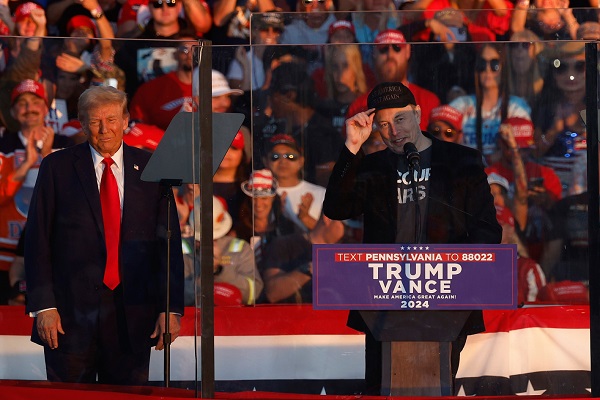From The Center Square
By Casey Harper
Many of Trump’s cabinet picks so far have also pledged to remove DEI programs from the federal government. These policies can range from training federal employees on “white privilege” to using medical research funds to study racism to awarding federal funds to recipients only as long as they toe the line on DEI orthodoxy.
President-elect Donald Trump’s win and his subsequent creation of a Department of Government Efficiency have galvanized lawmakers to pave the way for legislation to clean out diversity, equity and inclusion (DEI) policies, staff and programs that have ballooned under the Biden-Harris administration.
The Center Square was given advance copy of two bills filed Thursday by U.S. Rep. Bob Good, R-La., to end DEI practices at the Department of Housing and Urban Development
The first bill, the Flexibility in Housing Act of 2024, would block a Biden-Harris administration rule at HUD. That rule is about to be finalized and would require HUD grant recipients to implement “equity-driven housing plans.”
The newly introduced bill, however, would block that rule and give power to states and local governments to decide how best to spend the funds.
The second bill, the “No Discrimination in Housing Act,” would prevent large corporations from using DEI programs to get federal tax credits in buying up single family American homes, something many economists say is driving up the cost of homeownership for Americans.
The new bill “would prohibit any entity with a DEI initiative from receiving the Low-Income Housing Tax Credit – thereby ensuring the tax credit is distributed based on merit – not for the advancement of the radical DEI ideology.”
“The Biden-Harris Administration’s radicalization of housing policy prioritizes woke DEI corporations, yet does nothing that will actually drive down the cost of a home in an economy destroyed by Bidenflation,” Good told The Center Square. “My bills aim to restore Trump-era housing flexibility and eliminate the DEI housing policies that prohibit families from pursuing the American dream.”
These two bills, first obtained by The Center Square, are in line with Republicans’ renewed push to eliminate the hard left turn toward DEI policies taken in the last few years of the Biden-Harris administration.
Those policies have been under the microscope for years, but Trump’s win gives Republicans hope they can be undone.
Many of Trump’s cabinet picks so far have also pledged to remove DEI programs from the federal government. These policies can range from training federal employees on “white privilege” to using medical research funds to study racism to awarding federal funds to recipients only as long as they toe the line on DEI orthodoxy.
The latest high-profile examples of controversial DEI spending involves the Federal Emergency Management Administration. Amid the scandal of its handling of Hurricane Helene and Hurricane Milton, reporting has shown that FEMA lists DEI and equity as it number one priority.
U.S. Rep. Michael Cloud, R-Texas, introduced the Dismantle DEI Act, which advanced out of the House Oversight Committee, which would eliminate DEI programs in the federal government and return to a “colorblind” approach.
“Diversity, equity, and inclusion – these are words that, on the surface, seem to represent ideals we can all support,” Cloud said. But when these principles are redefined and implemented as an ideology within our federal government, they take on a meaning that diverges from their original intent.”
A recent report from Do No Harm documented about 500 examples of DEI programs across many agencies choosing to reward some Americans over others.
“Under the guise of progress, this ideology seeks to categorize individuals based on immutable characteristics rather than valuing the content of their character or their individual achievements,” Cloud continued.


















